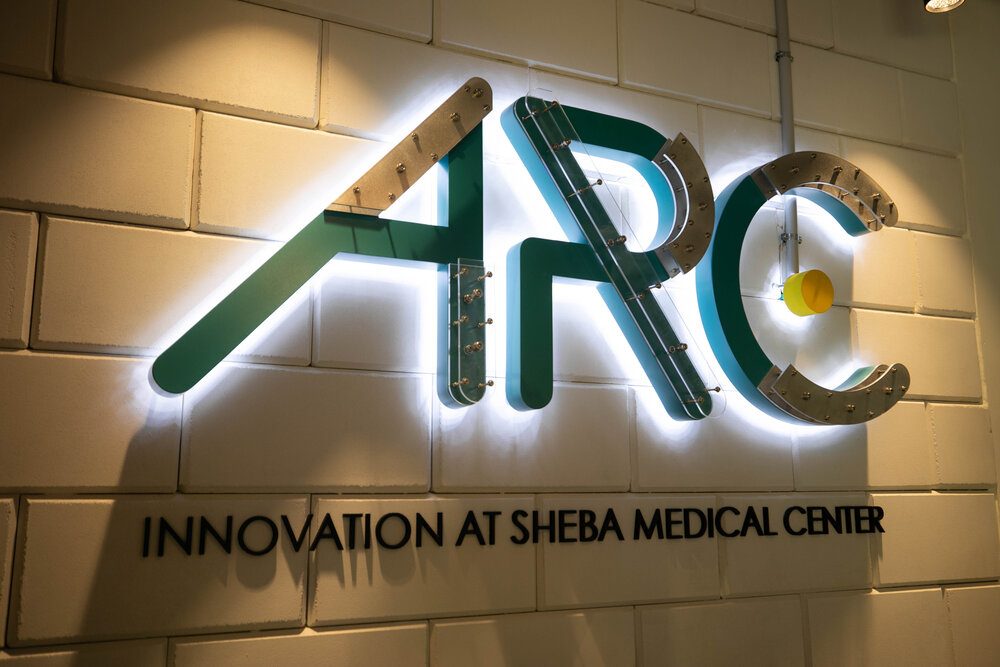Sheba Medical Center’s ARC Innovation Center Raises Over $110M in 2021


What You Should Know:
– Sheba Medical Center, Israel’s largest hospital, today announced that over $110 million was raised in 2021 by six companies from its ARC Innovation Center. All companies are based on technology invented and developed out of Sheba, with Sheba MedTech startups raising over one billion dollars over the last decade.
ARC Innovation Center Background
The ARC (Accelerate Redesign Collaborate) Innovation Center, led by Professor Eyal Zimlichman, Sheba’s Chief Innovation & Transformation Officer, endeavors to bring new technologies into the hospital and community ecosystem in order to revolutionize patient care. ARC allows seamless integration between innovators, scientists, startups, high-level developers, large corporate companies, investors, and academia-all under one roof. The ARC Innovation Center focuses on digital health technologies including precision medicine, big data, artificial intelligence (AI), predictive analytics, telemedicine and mobile health.
The six companies from Sheba to secure investments in 2021 include:
1. Aidoc, the leading provider of artificial intelligence solutions that support and enhance physicians’ diagnostic power, raised $66 million. Aidoc’s solutions use AI to analyze medical images directly after acquisition and notify radiologists directly in their workflows of cases with suspected findings. Aidoc has seven FDA-cleared solutions and has won numerous awards including the prestigious UCSF ‘Best New Health Application of AI’ award and TIME’s 50 most genius companies.
2. BELKIN Laser, a clinical-stage medical device company developing a disruptive automated one-second laser treatment for glaucoma, raised $13.75 million. Developed by Prof. Michael Belkin, an internationally renowned scientist and entrepreneur, the camera-guided system enables precise contact-free procedure through a sophisticated image processing algorithm that automatically defines the treatment location and tracks the movement of the eye. BELKIN Laser promotes accessibility to glaucoma care by allowing any ophthalmologist and other eye care providers to treat many more patients as a first-line treatment.
3. Starget Pharma, a start-up company in the field of biopharmaceuticals that develops products for the diagnosis and targeted treatment of cancer through radioactive radiation (targeted radiotherapy), raised $10 million. Starget develops unique molecules that serve as a vector for selectively transferring imaging materials and treatment to the tumor tissue. Starget’s leading research product is a somatostatin-like peptide based on a technology that was developed by Sheba Hospital and Tel Aviv University and granted an exclusive license to the company.
4. Append Medical, developer of the next-generation transcatheter Left Atrial Appendage (LAA) closure system, raised $7.6 million. The Append Medical procedure is designed to prevent blood clot leakage by achieving complete LAA closure, avoid device-related thromboembolism by leaving minimal foreign material at the closure site, while being a simple procedure with fewer LAA pre-procedure measurements. The Append Medical solution is in pre-clinical in-vivo trials phase and is intended to become a differentiated solution in the LAA closure market, which is estimated to reach $25B within several years.
5. Innovalve Bio Medical, an early-stage medical device company developing catheter-based heart valve therapies, raised $ 7.2 million. The company grew out of inventions and patents developed by Sheba experts Professor Ehud Raanani, the director of Sheba’s Cardiovascular and Thoracic Center, and Dr. Boris Orlev, head of the Sheba’s Mitral Valve Surgery Unit, and has developed an artificial mitral valve that can be replaced using a minimally invasive catheter to help treat patients with heart disease. The company has achieved successful results in experiments on animals and has received US-FDA approval for a US clinical trial, as well as approval in other territories.
6. TechsoMed a Biotech company engaged in the development of BioTrace™, the world’s first real-time monitoring and control system for ablation procedures, raised $7 million. The technology is applicable to multiple fields such as oncology (tumor ablation), cardiology (heart arrhythmia) and pain management (radiofrequency neurotomy) technology. The breakthrough technology brings disruptive improvement to thermal ablation through real-time AI and image analysis by interfacing with a standard ultrasound device.
“The quality of innovation at Sheba has earned the trust of healthcare innovators and industry alike. Moreover, the funding of six companies this year is a testament to investor confidence in Sheba-developed innovations, which aim to solve complex clinical challenges and make healthcare systems more efficient,” said Dr. Sylvie Luria, CEO of Sheba’s Technology Transfer Company, which handles ARC’s commercialization efforts. “Reaching $1 billion in investments in ARC technologies over a decade is a milestone, but the impact of these investments in improved healthcare delivery and patient outcomes is exponentially greater.”
